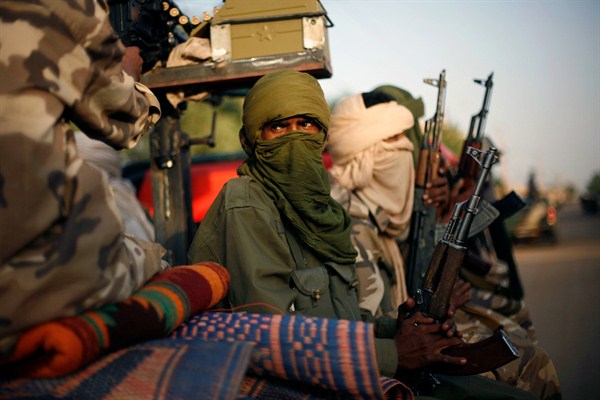Tuareg rebels and Malian government officials have begun meeting in Algeria to try and hammer out the terms of a lasting peace in northern Mali. In July, the parties signed a road map deal that paved the way for talks on a wide array of political and security issues. In September, they will return to the Algerian capital for three weeks of negotiations. But so far, the prospects for peace look slim with so many divisions among rebel groups.
The Algeria talks take the place of the 2013 Ouagadougou peace accord signed in neighboring Burkina Faso, which had allowed government troops into the northern rebel capital of Kidal and led to presidential elections. But the failure of that agreement to achieve a working infrastructure for peace became apparent just eight months later, when Prime Minister Moussa Mara unexpectedly flew to Kidal to show support for government forces. His presence there sparked a rebel assault on Malian soldiers and administrative authorities, leading to their withdrawal from Kidal and several other key towns in northern Mali. It was an embarrassment for the Malian government, which had yet again shown its incapacity to maintain order and station forces in the volatile far North, which has seen four Tuareg rebellions in the past 50 years, most recently in 2012.
Yet rebels and the Malian government don’t seem pressed for time, although they have a handful of vital, thorny issues to work out. Armed groups with questionable links to drug trafficking and terrorism still fight for territory in Mali’s vast northern desert territory, which Tuareg rebels call Azawad, threatening not only Mali but neighboring Algeria and Niger. Hundreds of thousands of refugees still languish in desert camps in Mauritania and Burkina Faso. Southern Malians are increasingly fed up with France’s Operation Barkhane, a region-wide counterterrorism campaign of indefinite duration that targets only those armed groups that the French military deems a threat to the West. It ignores the thousands of armed rebels who are still terrorizing civilians in the bush.

